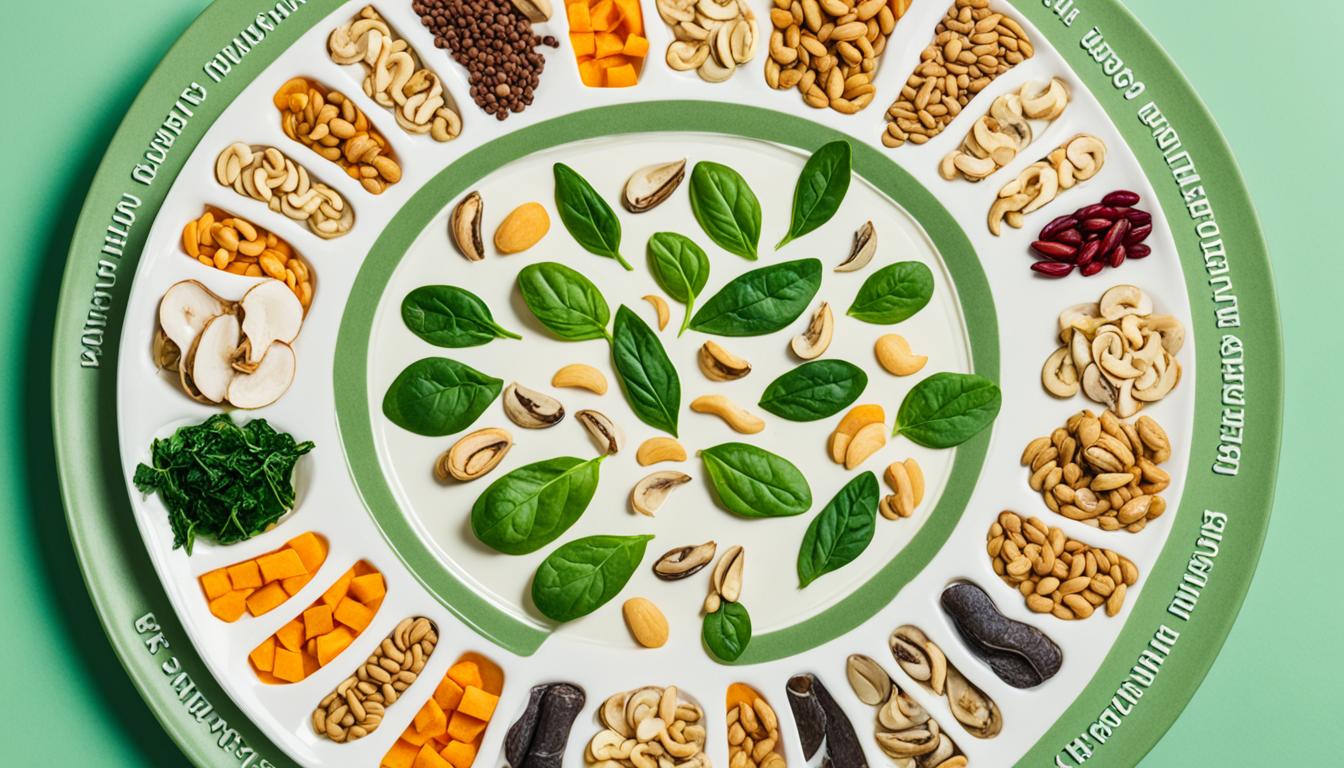5 Effective Ways to Lose 20 kg in One Month
Understanding the goal: Is losing 20 kg in one month realistic?
When aiming to weight-loss journey, it’s crucial to set realistic goals. Losing 20 kg in one month is a significant amount of weight to shed in such a short time frame. Here are some key points to consider when evaluating the feasibility of this goal:
- Healthy weight loss: A safe and sustainable rate of weight loss is generally considered to be 0.5 to 1 kg per week. Losing 20 kg in a month would equate to around 5 kg per week, which is much higher than the recommended range.
- Caloric deficit: To lose weight, one must be in a caloric deficit, expending more calories than they consume. Achieving a 20-kg weight loss in a month would require a drastic caloric deficit that may not be healthy or sustainable in the long term.
- Metabolic implications: Rapid weight loss can have negative effects on metabolism, muscle mass, and overall health. It is essential to prioritize overall well-being and long-term sustainability over quick results.
- Consulting a healthcare professional: Before embarking on any extreme weight loss plan, it is advisable to consult with a healthcare provider or a registered dietitian. They can provide personalized guidance and support based on an individual’s health status and goals.
While it is important to aim for progress in weight loss journeys, setting realistic and achievable goals is key to long-term success. It may be more beneficial to focus on making gradual, sustainable changes to your diet and lifestyle for lasting results.
Creating a Realistic and Sustainable Diet Plan
- To lose 20 kg in one month, it is essential to create a realistic and sustainable diet plan. This involves making long-term changes to one’s eating habits rather than opting for quick-fix solutions.
- Start by calculating the daily caloric needs based on factors like age, gender, weight, height, and activity level. This will help in determining the number of calories to consume for weight loss.
- Incorporate a variety of nutrient-dense foods, such as fruits, vegetables, whole grains, lean proteins, and healthy fats, into the diet plan. These foods provide essential nutrients while keeping the calorie intake in check.
- It is crucial to monitor portion sizes to avoid overeating. Use measuring cups, food scales, or visual cues to serve appropriate portion sizes and prevent consuming excess calories.
- Meal planning and preparation can be beneficial for sticking to a healthy diet plan. Prepare meals in advance to avoid unhealthy food choices when pressed for time or feeling tempted to indulge in high-calorie foods.
- Stay hydrated by drinking plenty of water throughout the day. Water not only helps in maintaining overall health but also aids in weight loss by keeping hunger at bay and promoting metabolism.
- Consider seeking guidance from a registered dietitian to develop a personalized diet plan that aligns with weight loss goals while ensuring adequate nutrient intake.
Implementing a realistic and sustainable diet plan is fundamental for achieving long-term weight loss and maintaining a healthy lifestyle.
Incorporating effective and efficient workout routines
- To achieve significant weight loss within a month, incorporating effective and efficient workout routines is crucial.
- High-intensity interval training (HIIT) is highly recommended due to its ability to burn a high amount of calories in a short period of time.
- Incorporate strength training exercises into your routine to build muscle mass, which can help boost metabolism and burn more calories throughout the day.
- Cardio exercises like running, cycling, or swimming are great for burning calories and improving cardiovascular health.
- Consider working with a personal trainer to create a customized workout plan that suits your fitness level and weight-loss goals.
- Utilize online resources or fitness apps to access a variety of workout routines and keep track of your progress.
- Mix up your workouts to prevent boredom and ensure that different muscle groups are being targeted effectively.
- Consistency is key; aim to exercise at least 4-5 times a week for optimal results.
“By combining a mix of cardio, strength training, and HIIT exercises, individuals can maximize calorie burn and achieve their weight loss goals more effectively.”
Utilizing lifestyle changes for long-term success
Maintaining a healthy weight involves more than just following a short-term diet. Lifestyle changes are crucial for long-term success in losing weight and keeping it off. Here are some effective ways to incorporate lifestyle changes into your weight loss journey:
- Healthy eating habits: Adopting a balanced and nutritious diet is essential for sustainable weight loss. Focus on consuming whole foods, such as fruits, vegetables, lean proteins, and whole grains. Limit the intake of processed foods, sugary treats, and high-fat snacks.
- Regular physical activity: Incorporating regular exercise into your routine is key to burning calories and improving overall health. Aim for a mix of cardio, strength training, and flexibility exercises to keep your body strong and fit.
- Prioritize sleep: Getting an adequate amount of quality sleep is crucial for weight management. Lack of sleep can disrupt hormone levels that regulate hunger and satiety, leading to cravings and overeating.
- Stress management: Chronic stress can contribute to weight gain by triggering emotional eating and disrupting healthy habits. Practice stress-reducing techniques such as meditation, yoga, deep breathing exercises, or spending time in nature.
- Behavioral changes: identify and address unhealthy behaviors that may be hindering your weight loss progress. This could include mindless snacking, emotional eating, or a sedentary lifestyle. Make small, sustainable changes to establish new, healthier habits.
By incorporating these lifestyle changes into your daily routine, you can not only lose weight but also maintain a healthy lifestyle in the long run. Remember, sustainable weight loss is a journey that requires patience, dedication, and a commitment to making lasting changes.
Seeking Professional Guidance and Support
Seeking professional guidance and support is key when embarking on a weight loss journey, especially when aiming to lose a significant amount of weight in a short period of time. Here are some essential considerations:
- Consult a Healthcare Provider: Before starting any new diet or fitness plan, it is crucial to consult a healthcare provider or a registered dietitian. They can provide personalized advice based on your health condition and ensure that you are losing weight in a safe and sustainable way.
- Hire a Personal Trainer: Working with a certified personal trainer can help you create a tailored workout plan that aligns with your weight loss goals. They can also provide guidance on proper exercise techniques to maximize results and minimize the risk of injury.
- Join a Weight Loss Program: Consider joining a reputable weight loss program that offers professional support and accountability. Programs like Weight Watchers or Jenny Craig provide structured meal plans, coaching, and group support to help you stay on track.
- Seek Counseling: Emotional support plays a significant role in successful weight loss. Consider seeking counseling or therapy to address any underlying emotional issues or unhealthy relationship with food that may be hindering your progress.
- Nutritionist Guidance: A nutritionist can help you create a balanced meal plan that meets your dietary preferences and weight loss goals. They can provide valuable insights on portion control, food choices, and meal timing to optimize your weight-loss journey.
Incorporating professional guidance and support into your weight loss journey can significantly increase your chances of success and ensure that you are making healthy choices along the way.
Understanding the importance of rest and recovery
Rest and recovery are crucial components of any successful weight loss journey. Here are some reasons why they matter:
- Muscle Repair: Rest allows your muscles to repair and recover from the strain of workouts, leading to muscle growth and increased metabolism.
- Prevention of Burnout: Giving your body time to rest can prevent burnout and reduce the risk of overtraining, which can hinder weight loss progress.
- Hormone Balance: Quality sleep and adequate rest help maintain proper hormone balance, including hormones that regulate appetite and metabolism.
- Injury Prevention: Rest days reduce the risk of injuries associated with overuse and strain on the body, allowing for sustainable progress towards weight loss goals.
- Mental Well-Being: Adequate rest and recovery promote mental well-being, reducing stress levels and improving overall focus and motivation.
When aiming to lose 20 kg in one month, it may be tempting to push yourself to the limit every day. However, understanding the importance of rest and recovery is crucial to achieving sustainable and healthy weight loss results.
Remember, balance is key. Incorporating rest days into your routine, getting quality sleep, and listening to your body’s signals are essential for long-term success on your weight loss journey.
Staying motivated and committed to the journey
Maintaining motivation and commitment are key factors in successfully losing 20 kg in one month. Here are some effective strategies to help you stay on track:
- Set realistic goals: It’s important to set achievable goals when embarking on a weight loss journey. Break down the 20 kg target into smaller, more manageable goals to celebrate progress along the way.
- Find a support system. Surrounding oneself with a supportive network can provide encouragement during challenging times. Whether it’s friends, family, or a weight loss group, having people who believe in the journey can make a significant difference.
- Track progress: Keeping track of weight loss progress, whether through a journal, app, or regular weigh-ins, can help you stay motivated. Seeing tangible results can reinforce commitment to the goal.
- Reward achievements: Celebrate milestones reached along the way. Rewards can be non-food-related, such as treating oneself to a spa day or buying new workout gear. Recognizing efforts can keep motivation high.
- Stay focused on the why: Reminding oneself of the reasons behind wanting to lose weight can help maintain motivation. Whether it’s for health reasons, self-confidence, or overall well-being, keeping the “why” at the forefront can fuel determination.
By implementing these strategies, individuals can stay motivated and committed throughout their journey to losing 20 kg in one month. Remember, consistency and determination are key to achieving long-lasting results.
Tracking progress and making necessary adjustments
Tracking progress is crucial when aiming to lose a significant amount of weight within a short period of time. Keeping a detailed record of your daily food intake, exercise routine, and weight fluctuations can help monitor your progress effectively. Here are a few strategies to help you track your progress and make necessary adjustments along the way:
- Keep a food journal. Write down everything you eat and drink throughout the day. This will help you identify any unhealthy eating habits and allow you to make changes accordingly.
- Use a weight tracker. Weigh yourself regularly, preferably once a week, to keep track of your weight loss progression. This will help you stay motivated and adjust your diet or exercise plan if needed.
- Measure your body: In addition to tracking your weight, measure your waist, hips, and other body parts to monitor changes in your body composition. Sometimes, you may be losing inches even if the scale isn’t moving.
- Stay consistent with your exercise routine. Tracking your workouts can help you ensure you’re staying consistent and progressively challenging your body. Keep a log of the type of exercise, duration, and intensity levels.
- Listen to your body: Pay attention to how you feel after meals or workouts. If something isn’t working for you, be open to making adjustments. Consulting with a healthcare provider or a nutritionist can also provide valuable insight into the necessary adjustments.
By diligently tracking your progress and making timely adjustments, you can stay on course towards your weight loss goals effectively. Remember, consistency and perseverance are key to achieving long-term success in your weight loss journey.
Addressing potential obstacles and setbacks
- Keep in mind that losing 20 kg in one month is an ambitious goal, and setbacks may occur.
- It is essential to stay motivated and focused throughout the process.
- Consistency is key, so even if there are obstacles, do not give up.
- If facing challenges such as cravings or hunger, try to find healthy alternatives to satisfy them.
- Remember that weight loss is a gradual process, and results may vary from person to person.
- Stay hydrated and ensure you are getting enough sleep to support your weight loss journey.
- If you experience a plateau in your weight loss, reassess your diet and exercise routine to overcome it.
- Seeking support from friends, family, or a healthcare professional can help you stay on track and address any obstacles you encounter.
- Be mindful of any potential injuries or health issues that may arise during your weight-loss journey.
- Listen to your body and adjust your plan as needed to ensure a safe and sustainable approach to losing 20 kg in one month.
Celebrating achievements and maintaining a healthy lifestyle
- Engage in regular physical activity to celebrate your achievements and maintain a healthy lifestyle. Exercise not only aids in weight loss but also boosts mood and overall well-being. Incorporate activities like brisk walking, cycling, or swimming into your routine.
- Ensure a balanced and nutritious diet rich in fruits, vegetables, lean proteins, and whole grains. Celebrate your progress by trying new healthy recipes and experimenting with flavorful, wholesome ingredients.
- Stay hydrated by drinking plenty of water throughout the day. Hydration is key to supporting weight loss, maintaining energy levels, and promoting overall health.
- Get an adequate amount of sleep each night to rejuvenate your body and mind. Celebrate your weight-loss journey by prioritizing rest and creating a bedtime routine that promotes relaxation.
- Monitor your progress and celebrate small victories along the way. Keeping track of your weight-loss achievements can help you stay motivated and committed to your goals. Celebrate your success by treating yourself to non-food rewards like a relaxing massage or a new workout outfit.










